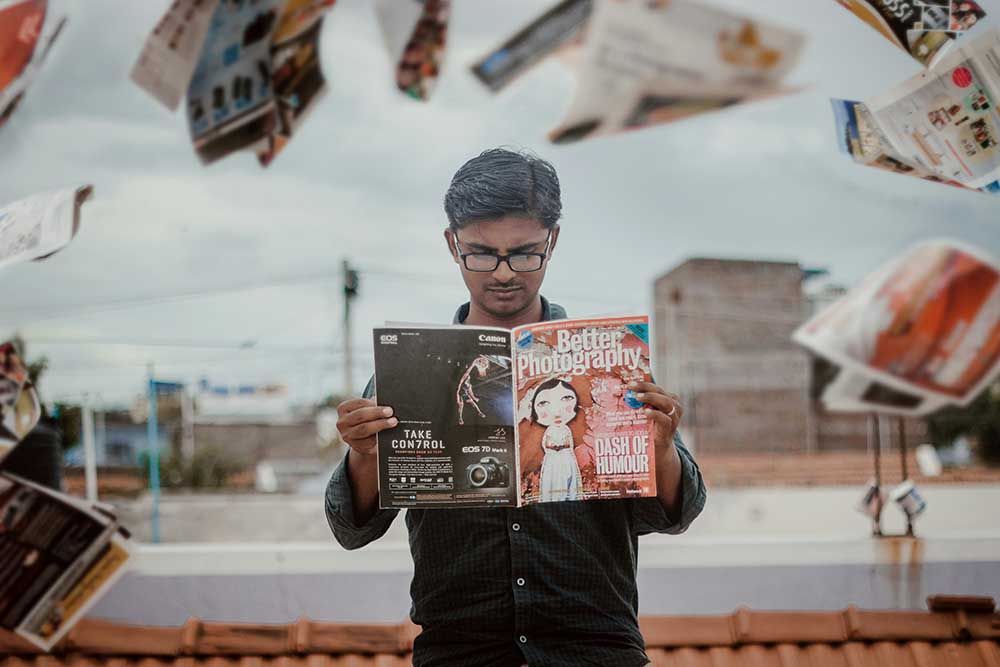Why Singapore’s Literacy Gap Hits Close to Home As A Writer
Singapore’s 15-year-olds are crushing it in reading tests, outperforming their peers in the Organisation for Economic Co-operation and Development (OECD)'s Programme for International Student Assessment (PISA). But those same bright sparks aren’t shining quite as brightly when it comes to adult literacy. A recent study by the OECD’s Programme for the International Assessment of Adult Competencies (PIAAC) revealed a sobering truth—Singapore’s adult literacy proficiency is below the OECD average. And for adults aged 55 to 65? We’re sitting at 27th place out of 31 countries.
Ouch.
As a writer, this hits close to home. Literacy is my bread and butter, my first love, and occasionally, the hill I’m willing to die on when someone tries to use “your” instead of “you’re.” But this isn’t about grammar pedantry or a disdain for bad text-speak (though we’ll get to that). It’s about a deeper issue: Why are we, as a nation, losing the ability to effectively read and write as we age? And what does that mean for us as individuals and as a society?
 IMAGE: UNSPLASH
IMAGE: UNSPLASH
From “Cheem” to “Simple English, please”
Growing up, I was that friend. You know, the one who whipped out words like “erudite” or “quixotic” in casual conversations. I thrived on books—from The Da Vinci Code to the Harry Potter series—and loved losing myself in beautifully crafted sentences. But adulthood, especially in the workforce, quickly humbled me. In one of my first jobs, I sent out an email that included the phrase “disparate outcomes”—only to have a colleague reply with, “What does this mean? Can you rewrite it in simple English?”
And there it was: the disconnect. The gap between the “cheem” language I loved and the straightforward, accessible communication needed in the workplace. Over time, I noticed that many colleagues struggled with written communication, whether it was drafting clear emails, summarising reports, or even distinguishing between “effect” and “affect.” And these weren’t isolated incidents—they reflected broader trends in adult literacy here in Singapore.
Witnessing firsthand a great decline
According to the OECD study, literacy in Singapore declines sharply after the age of 35 and continues to dip as adults age. This decline isn’t just about reading complex literature or crafting eloquent prose. It’s about basic literacy skills that affect our ability to function in an increasingly complex world. From navigating digital platforms to understanding financial contracts, the lack of strong literacy skills can become a significant barrier.
Perhaps in our school days, we’re spoon-fed knowledge to ace exams, hence we retain good reading habits by pure osmosis. But once those exams are over, many of us stop actively engaging with reading and writing. Is it any wonder than that over time, your “literacy muscle” atrophies?
 IMAGE: UNSPLASH
IMAGE: UNSPLASH
Why literacy matters (and not just for writers)
For me, literacy isn’t just a skill—it’s a foundation. As a writer, every book I’ve read has led me to discover new types of storytelling, sentence structure, and vocabulary. Reading widely and consistently builds up your “memory bank” for better grammar and more compelling communication. Not to mention it opens doors to new ideas, broadens our perspectives, and allows us to connect meaningfully with others.
In my personal experience at the workplace, strong literacy skills translate to better emails, reports, and presentations. They also build confidence. Think about it: How many times have you hesitated to write something because you weren’t sure it sounded right? Literacy isn’t just about words—it’s about empowerment.
The societal shift away from reading
Yet, let’s be real—reading isn’t what it used to be. Gone are the days when people curled up with a novel or eagerly flipped through magazines. Now, we’re bombarded by endless content on our phones: TikToks, Instagram, and WhatsApp messages. While these are valid forms of communication, they often prioritise brevity over depth. And let’s not even get started on how the younger generation are competing to see how many emojis they can use in their captions to appear “cool”.
 IMAGE: UNSPLASH
IMAGE: UNSPLASH
Turning the page - How we can improve then
While systemic changes (like promoting lifelong learning) are crucial, I feel that your own individual efforts matter too. Here are some of my own actionable tips that I practice to inculcate my love for reading:
Read what you love: Forget about what you “should” read. Pick up a book, article, or blog on a topic that excites you. I’m a wrestling fan so I’ve naturally gravitated towards pro wrestling biographies and magazines. Perhaps you love cooking. There’s nothing stopping you from picking up that recipe book you’ve been eyeing at Kinokuniya.
Start small: Commit to just five minutes of reading a day, even if it's just an online news article. You’ll be surprised how quickly it becomes a habit. And if you’re made it this far down the article, kudos to you!
Mix it up: Speaking of which, explore diverse materials—novels, non-fiction, news articles, essays. Each format has something unique to offer. My recent guilty pleasure has been reading X (formerly Twitter) threads on political hot takes (don’t judge).
Write more: Whether it’s journaling, blogging, or even crafting better captions for Instagram, writing reinforces reading skills. It’s a two-way street.
Discuss what you read: I have a habit of sharing everything I read with my partner (much to her annoyance sometimes. But discussions can deepen your understanding and make reading more enjoyable.
The literacy gap in Singapore might feel insurmountable, but it’s not a lost cause. By fostering a culture that values reading and lifelong learning, we can ensure that literacy isn’t just something we excel at in school but a skill we carry through life.
The study might come across as an inconvenient truth. But for me, as a writer, it’s heartening to see conversations like these gaining traction. Perhaps it can be the wake up call we all need. Because at the end of the day, literacy isn’t just about words on a page—it’s about connecting, understanding, and growing together as a society.
For the latest updates on Wonderwall.sg, be sure to follow us on TikTok, Telegram, Instagram, and Facebook. If you have a story idea for us, email us at [email protected].











